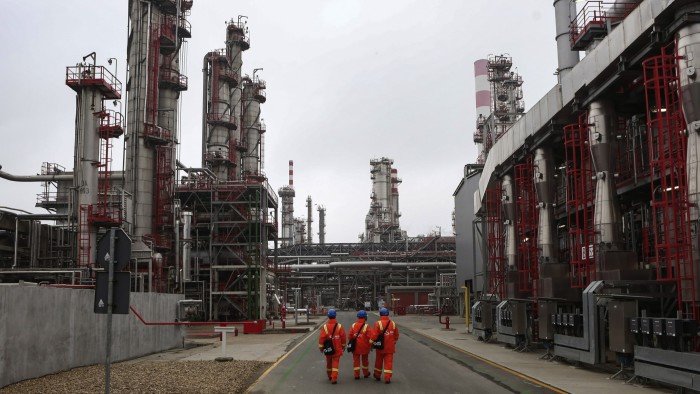Unlock the White House Watch newsletter for free
Your guide to what the 2024 US election means for Washington and the world
Serbia faces losing access to oil imports on Friday as talks aimed at preventing US sanctions being imposed on the country’s only oil refinery failed to break the deadlock, according to President Aleksandar Vučić.
The US Treasury has called on Russia’s state-owned Gazprom and its subsidiary Gazprom Neft to sell their majority stake in Serbian refinery NIS — among hundreds of other business holdings — as part of efforts to “target Russia’s primary revenue source”, or face sanctions.
The extended deadline for the Russian owners to divest from NIS expires on Friday, and Vučić said he did not expect a last-minute deal to avert the crisis.
Most of Serbia’s crude imports arrive via a pipeline owned by Janaf of Croatia, which would be required to suspend its business with NIS to avoid breaching the US restrictions.
“We’ve been talking to the Americans, to the Russians, to everybody” about finding a solution, Vučić told the Financial Times. “We didn’t see any changes in the American attitude.”
He admitted he was “not sure that Janaf will stop transferring the oil” on Friday, and acknowledged the need for Serbia — which has about 80 days worth of reserves — to strike a deal.
Janaf told the FT it had requested a 90-day license from the US for the execution of the contract with the Serbian refinery. “[We] hope for a positive outcome that would allow us to fulfil our contractual obligations towards NIS,” it said in an emailed reply to questions.
Serbia’s president has maintained a working relationship with the Kremlin and refused to join EU sanctions against Moscow following Russia’s invasion of Ukraine in 2022.
But Vučić has also come under mounting domestic pressure, with months of protests culminating in a mass rally in Belgrade this month in which hundreds of thousands of Serbs demonstrated against the perceived corruption and failures of his government — the most severe challenge to his 13-year rule.
The Russian owners have declined to sell their combined 56 per cent stake in NIS, although they have shuffled the ownership structure around so that neither Gazprom nor Gazprom Neft hold a majority in the refinery.
“The Russian attitude is that they want to keep it at any price,” Vučić said. He has previously ruled out nationalising NIS or the Russian stake as a way of averting the sanctions, and declined to discuss strategies over how he would defuse the situation.
“At the end, we need to have a fully secured oil market in our country, which means full supply of oil to our refinery and to our gasoline market,” he said, adding that price was not an issue and the problem could be solved “easily” if a deal were to be struck on the transfer of ownership of NIS.
One possible solution, according to industry figures, is for the Hungarian oil group MOL to step in and buy the Russian stake in NIS. MOL has declined to discuss the issue. Vučić said it had not been raised during a phone call with Hungarian premier Viktor Orbán on Wednesday.
Hungary’s foreign minister was in Moscow at that same time alongside MOL chair Zsolt Hernádi, discussing energy issues with the Russian government, but Vučić said he was not aware if NIS was on their agenda.
Asked to what extent the NIS issue was part of a wider Russian-US discussion in the context of ending the war in Ukraine, Vučić said: “I think it’s a tiny issue for them.”
He added: “If sanctions come into force we’ll have to see the reaction as soon as possible from the Russian side, and then we’ll have to react as well.”
